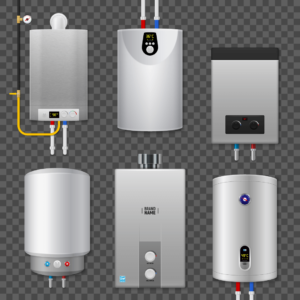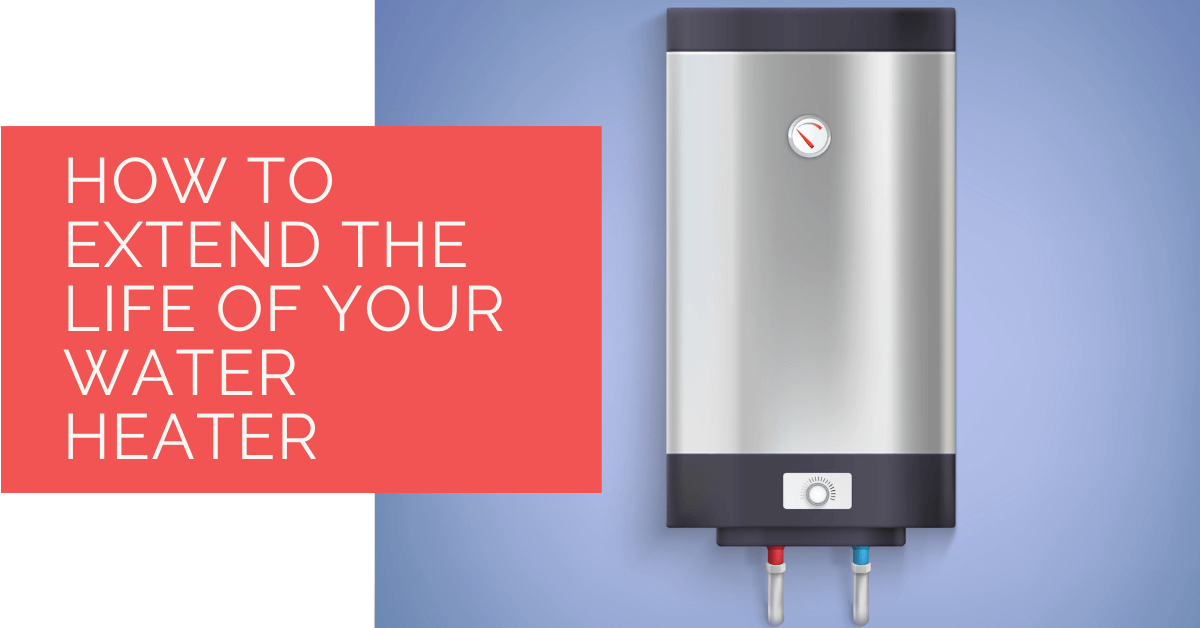In an ideal world, water heaters might be indestructible, withstanding any test of durability or time, but in truth, the typical water heater barely lasts 8 to 12 years. There are various kinds of water heaters available, with their own advantages and disadvantages.
With several trendy options available, it’s always preferable to be informed about all of your possibilities rather than relying on chance.
This article will walk you through the five most common water heater models and discuss their benefits and drawbacks to help you make an informed purchase.
Along with looking at the kinds of water heaters, this article will also enlist ways to extend your water heater’s lifespan. Read on to find out.
Contents
Key Takeaways
- Various types of water heaters are available, including conventional, tankless, heat pump, solar-powered, and condensing water heaters, each with advantages and disadvantages.
- To extend the lifespan of your water heater, perform regular maintenance checks, including inspecting for leaks and corrosion, testing the pressure release valve, flushing the tank, examining the anode rod, and inspecting gas lines.
- Adding a tank for expansion, using a water softener, and ensuring proper ventilation around the water heater can also help prolong its life and prevent issues.
Types of Water Heaters
Conventional Water Heater
The tank’s capacity influences how much warm water is accessible anytime. The container is sealed, so when the water is heated, it stays warm until it’s time to use it. The temperature monitoring and pressure regulator valves are located on this tank.
When the water temperature exceeds 120 degrees Fahrenheit, the temperature monitoring valve opens to discharge heat and decrease the temperature. When the pressure hits roughly 150 psi, the pressure valve opens to reduce the pressure.
It’s the most prevalent form of water heater in family houses, but the amount of hot water you can use will be limited depending upon the size of the tank.
Tankless Water Heater
A tankless water heater does not have a tank. Rather, super-heated coils refill water and heat the water as needed. It is also hence called an on-demand water heater. This is ideal for swiftly heating water, especially for large households that require a significant amount of warm water at the same time.
A modest tankless heater would not be capable of keeping up with your water demand, resulting in tepid or cold water. These versions operate well in homes with natural gas water heaters.
Heat Pump Water Heater
The heat pump water heater is unique because it heats water using air and earth heat. This implies that power is only used to transfer heat from the air or ground to the water rather than generate heat. This kind of water heater can save up to 60% on energy compared to standard water heaters.
Solar Powered Water Heater
This type of water heater uses roof-mounted solar cells as its power source. The energy is transmitted to a closed-loop system that uses a high-temperature substance to heat the water from the reservoir.
This could save you a great deal of money on hot days, and it’s beneficial for people who reside in hot, sunny climates. However, this method requires a systematic backup plan, like electricity or gas, for the water heater to continue operating on overcast days.
Condensing Water Heater
If your home’s primary energy source is natural gas, a condensing water heater is the best alternative. This water heater uses hot air from the standard gas system to heat water stored in a tank, similar to the standard water heater. For warming up, the gas fumes pass via a coil at the depth of the tank. As a result, relatively minimal energy is used to heat your home’s water.

How to Extend Water Heaters Lifeline?
Maintaining Checks
Conducting several routine maintenance checks on your water heater a bunch of times a year would significantly strengthen its life and enhance its efficiency.
Maintenance Inspections
Inspect your heater for any symptoms of leakage or corrosion regularly. Check for any crevices or moisture leaking in the joints and any splits in the body. It’s critical to address any leaks you see right away because even a minor leak can result in floods if not addressed soon.
It could be as simple as adjusting the pipes to fix a leak, but a broken pipe or item may need a complete replacement.
Test the Pressure Release Valve
Your heater’s in-house safety check would be the pressure-relief valve. It prevents an explosion by automatically releasing pressure when it becomes too excessive within the tank. It’s a critical component of the water heater that you must always check to make sure it’s working correctly. Simply pull the lever placed on the sides or above the heater to test it.
Flushing the Tank
Empty a few litres of water from your hot water system into a container every 6-12 months to inspect the water. Clean the heater thoroughly if the water is clogged with dirt and grime.
When material accumulates in the hot water system tank, it reduces the system’s performance and raises your energy expenses.
Even though some new self-cleaning water heaters eliminate silt for you, you should still drain and wash the tank every three years or so.
Examine the Anode Rod
An anode pipe is a metal bar inserted into a heater to avoid corrosion of the tank. This is done by attracting all rust even before it touches the metal in the tank. The metal tank can rot and suffer irreparable harm if the anode rod is completely corroded.
Inspect the anode rod inside the hot water tank once a year, and if it is nearly or rusted, it is better to upgrade it. Anode rods have a three- to five-year lifespan. It’s also feasible to add an anode rod to specific models to increase the life of your water heater.
Examine the Gas Lines
If your heater is connected to gas pipelines, these should also be inspected. These pipelines will have to be fixed as quickly as possible if there are any cracks or damage. Take all essential safety steps if you fear gas is escaping from a fuel line because that can be pretty dangerous.
Add a Tank for Expansion
When water heats up quickly, it expands. There is nothing or nowhere for this water to go as it expands if your hot water tank is in a closed environment which does not permit any return into the water main. The rapid pressure alteration due to temperature changes imposes a lot of strain on a hot water system.
Add a Water Softener
Water with a high mineral composition, often known as hard water, can be found in some regions. Hard water is far more likely to form mineral deposits within the hot water system, shortening its lifespan. Adding water softeners to help prevent these deposits from forming is a good way.
Allow it to Breathe
Make sure your water heater isn’t overworked. There should be enough space around the hot water system to examine it for problems and perform routine maintenance. It also requires space for air circulation to lessen the risk of fire.
Instead of expecting that your heater will always perform well, be responsible for its service. It will save you money and avoid significant difficulties in the future.
Heat Pump Source: Reliable Heating and Cooling Solutions
At Heat Pump Source, we take pride in our unwavering commitment to serving the UK with top-tier HVAC solutions. From the efficiency of heat pumps and the cool relief of air conditioning to the warmth of boilers, radiators, and underfloor heating, our dedicated team is always at the forefront of innovation. We understand the unique needs of every household and business, and we strive to provide dependable health and cooling products and services that are tailored just for you. Ensuring your comfort and satisfaction is our utmost priority. Whether you have questions, need guidance, or require support, we’re always here to assist. Please don’t hesitate to contact us; we’re eager to be of service.
Conclusion
Water heater servicing is not always a do-it-yourself project. You can contact your local hot water system maintenance business if you have problems troubleshooting a severe issue with your heater.
About the Author
At Heat Pump Source, our articles are the product of a collaborative effort among a team of highly skilled HVAC experts. Our dedicated professionals, hailing from diverse backgrounds in heating, ventilation, air conditioning, and refrigeration, contribute their extensive knowledge and experience to every piece of content. This multidisciplinary approach ensures comprehensive coverage. Our commitment is to deliver authoritative, reliable, and tailored advice to meet the unique needs of every household and business across the UK.

